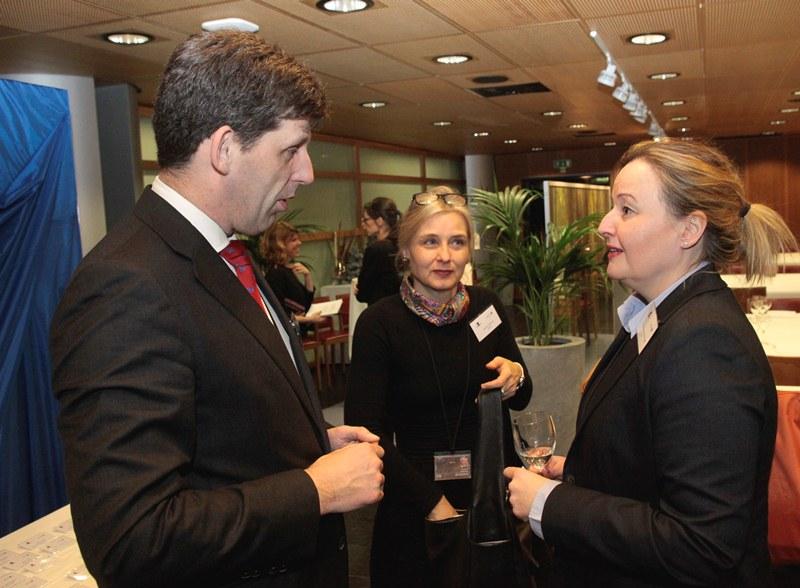How to integrate up to 60% renewables to the EU power system
- Pierre Bornard, Chairman of the Board of ENTSO-E & Deputy CEO of RTE
Intervention by:
- Florian Ermacora, Head of Unit ‘Wholesale markets: electricity and gas’, DG Energy
In October 2014, the European Council agreed on ambitious energy and climate policy targets for 2030. By that time no less than 45% renewable energy will need to be integrated to the EU power system. Integrating such a large share of renewable energy while completing the internal energy market places the European Network of Transmission System Operators for Electricity (ENTSO-E) at the forefront of executing European energy and climate policy.
ENTSO-E’s 2014 Ten-Year Network Development Plan (TYNDP) explains what pan-European infrastructure is necessary to integrate up to 60 % of renewables. Published in December 2014, the latest edition of the TYNDP details the need to invest up to €150 bn in the refurbishment or construction of approximately 50,000 km of extra high voltage power lines in Europe by 2030.
The Plan includes 120 projects of European significance (i.e. Projects of Common Interest), which support the fundamentals of EU energy policy – the integration of renewable energy sources (RES), market facilitation, and security of supply.
Pierre Bornard, Chairman of the Board of ENTSO-E, presented the challenges and opportunities in implementing the TYNDP and the importance of system planning in meeting the EU’s 2030 energy and climate policy objectives. Florian Ermacora, Head of Unit at DG Energy, expressed the views of the European Commission on the key role infrastructure plays in integrating RES to the energy market. The presentations stimulated a lively round of questions from Members of the European Parliament.
It was a pleasure to welcome our members to this event.
Participation is open to all MEPs interested in energy issues. Please contact the EEF if you are an MEP and you wish to take part in our debates.
All EEF discussions are held under Chatham House Rule to provide anonymity to speakers and to encourage openness and sharing of information during the debate.
The EEF is a membership-driven organisation. We are pleased to welcome non-member companies eligible for membership to two of our events. After, we reserve the right to request membership for further attendance at events.



